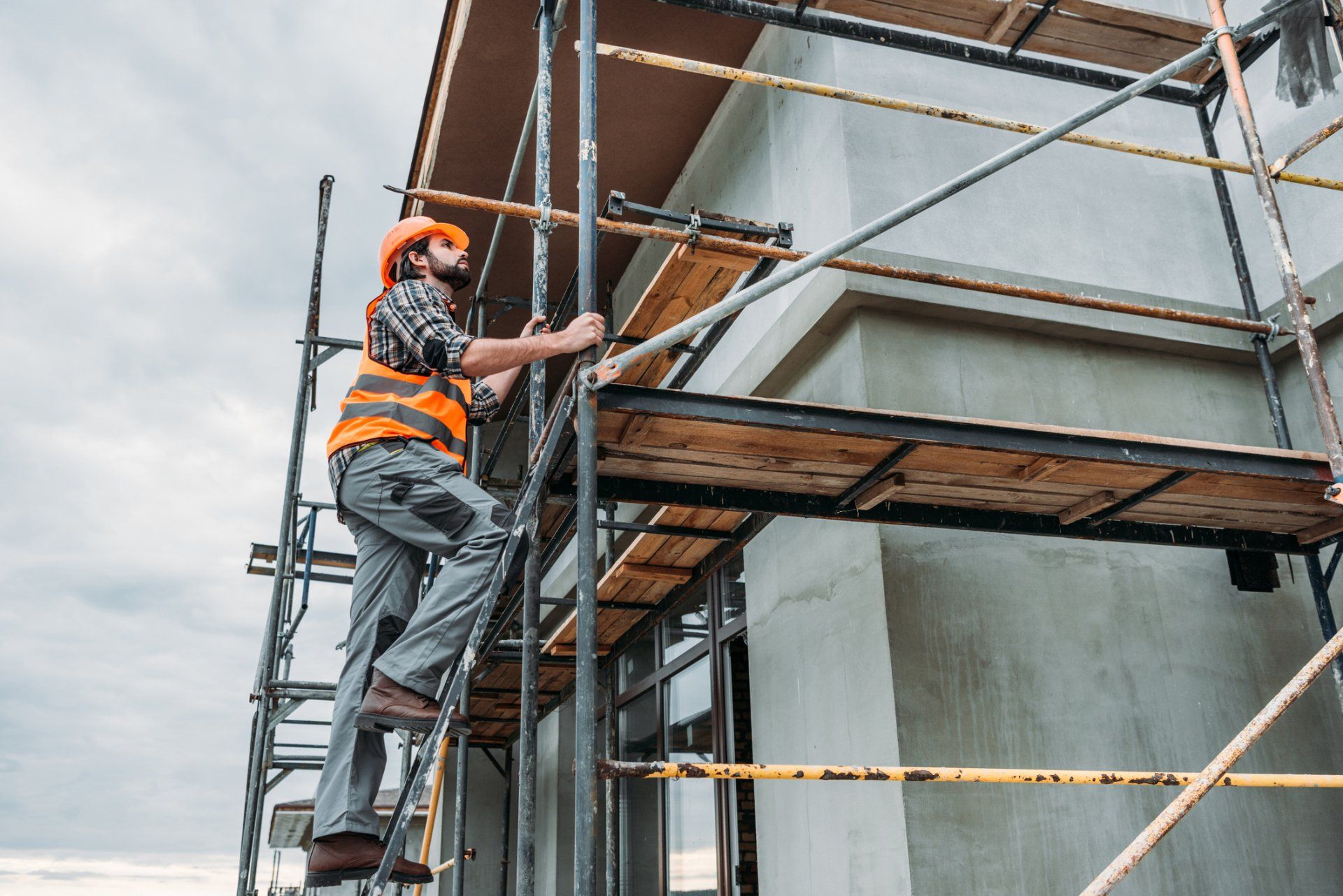Safe and Durable Scaffolding Guildford for Your Upcoming Construction Work
Safe and Durable Scaffolding Guildford for Your Upcoming Construction Work
Blog Article
Checking Out the Different Sorts Of Scaffolding Used in Building Jobs
The construction sector depends greatly on different types of scaffolding to fulfill details task demands, each offering distinct advantages and applications. Typical frame scaffolding offers a durable structure for general tasks, while suspended scaffolding is crucial for work on skyscraper frameworks.

Traditional Frame Scaffolding
Conventional structure scaffolding is among one of the most widely used techniques in the building industry because of its effectiveness and versatility. This system includes upright and straight frameworks that are assembled to create a secure system for products and employees. The major elements consist of vertical messages, horizontal journals, and diagonal dental braces, which with each other give a solid structure that can sustain considerable tons.
Among the crucial benefits of traditional frame scaffolding is its versatility to different construction jobs, varying from residential structures to huge business frameworks. The modular design enables simple assembly and disassembly, making it efficient for both lasting and short-term tasks. Furthermore, the system can be tailored in elevation and size, fitting different structure layouts and site problems.
Safety is critical in scaffolding applications, and conventional frame systems are outfitted with guardrails and toe boards to avoid falls and ensure employee protection. Normal inspections and adherence to safety laws are essential in preserving the stability of the scaffold (Scaffolding). Overall, standard structure scaffolding stays a fundamental selection in the building and construction market, giving a trustworthy system for labor and boosting overall task effectiveness

Suspended Scaffolding
Suspended scaffolding provides an unique remedy for building and construction jobs that call for access to elevated surfaces, particularly in scenarios where conventional frame scaffolding might be not practical. This type of scaffolding is generally put on hold from the roof covering or upper levels of a structure, making use of a system of ropes, pulleys, and systems to create a functioning area that can be gotten used to various elevations.
One of the key benefits of suspended scaffolding is its adaptability. It can be conveniently repositioned or lowered to accommodate changes in building and construction demands, making it ideal for jobs such as home window installation, frontage job, and maintenance on skyscrapers. Furthermore, the very little impact of put on hold scaffolding enables far better use ground room in city settings, where area is usually limited.
Safety is a crucial factor to consider in the usage of suspended scaffolding. In general, put on hold scaffolding offers a efficient and efficient remedy for accessing hard-to-reach areas in numerous construction circumstances, boosting both productivity and safety and security on website.
System Scaffolding
System scaffolding, commonly considered as a modern-day service in the scaffolding market, scaffolding questions for math contains pre-engineered parts his comment is here that can be promptly put together and adjusted for numerous building projects. Scaffolding. This sort of scaffolding is identified by its modular design, which permits versatility and effectiveness on job sites, suiting structural demands and various elevations
Generally made from high-strength steel or light weight aluminum, system scaffolding uses boosted durability and stability. The parts include vertical blog posts, horizontal ledgers, and diagonal braces, which interconnect safely, ensuring a durable structure. The design often integrates standard installations, simplifying assembly and disassembly processes, thus reducing labor time and expenses.

Rolling Scaffolding
Moving scaffolding is a flexible alternative to standard fixed scaffolding, made for wheelchair and ease of use on construction sites. This kind of scaffolding contains a platform sustained by structures with wheels, enabling employees to conveniently move it as required. The mobility function substantially enhances productivity, as it minimizes downtime related to dismantling and setting up taken care of scaffolding.
Usually created from lightweight products such as light weight aluminum or steel, rolling scaffolding uses a strong yet portable service for jobs needing constant repositioning - Scaffolding. It is especially useful in jobs such as painting, drywall installment, and electrical work, where access to numerous heights and areas is needed
Safety and security is critical in rolling scaffolding layout, with attributes such as locking wheels to stop unintentional motion when click to read more being used, and guardrails to secure workers from drops. Additionally, many models are adjustable in elevation, fitting numerous project demands.
Cantilever Scaffolding

The layout of cantilever scaffolding usually entails making use of braces or arms secured to a structure or structure, enabling the platform to extend outside safely. Safety and security is vital; thus, these scaffolds should be crafted to withstand environmental conditions and various lots. Normal evaluation and upkeep are necessary to guarantee structural integrity and worker security.
Cantilever scaffolding is favored for its adaptability and efficient use space, making it a prominent selection in metropolitan atmospheres where space constraints are usual. It helps with simpler access to high altitudes, ultimately contributing to the general effectiveness of building tasks. Similar to all scaffolding kinds, correct training and adherence to safety criteria are critical for employees making use of cantilever scaffolding.
Verdict
Typical framework scaffolding supplies security, while put on hold scaffolding supplies flexibility for raised tasks. System scaffolding helps with fast setting up, and rolling scaffolding boosts mobility for differing job settings.
Conventional structure scaffolding offers a tough foundation for general tasks, while put on hold scaffolding is necessary for work on high-rise frameworks.Rolling scaffolding is a flexible choice to conventional set scaffolding, made for mobility and ease of usage on building sites. As with all scaffolding kinds, appropriate training and adherence to security standards are crucial for workers making use of cantilever scaffolding.
Typical structure scaffolding offers stability, while put on hold scaffolding provides versatility for raised tasks. System scaffolding helps with quick setting up, and rolling scaffolding improves mobility for differing work environments.
Report this page